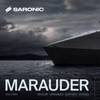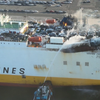Report Confirms Increased Assessments on Maritime Industry
U.S. ports got confirmation at its Annual Convention meeting from a just-released General Accounting Office (GAO) Report that both the number and the dollar amount of fees assessed on the maritime industry have increased since the last study was released in 1993.
The GAO Report, Federal Assessments on the Maritime Industry, states 11 federal agencies collect 124 different fees and assessments on maritime commerce, for a total of almost $22 billion ($21 billion of which is collected by U.S. Customs alone). Total collections have increased from $18.2 billion in fiscal 1991 to $21.9 billion in fiscal 1998.
"This confirms what we've been saying for years: Shippers, vessel owners, operators, importers and exporters are already heavily taxed," said Kurt J. Nagle, AAPA president. "Adding a new $1 billion tax in the form of the Administration's proposed Harbor Services tax would be outrageous. If the U.S. is to remain competitive in global trade, we don't need more taxes added to what our manufacturers and small businesses already pay."
In fiscal 1998, shippers (importers and exporters) paid about $20 billion of the total, vessel operators about $1 billion and various other parties paid the rest. From fiscal year 1991-98, the amounts paid by shippers increased by 17 percent, or about $2.9 billion. During the same time period, the amounts paid by vessel owners and operators increased by 46 percent, or about $309 million.
Twenty billion of the total revenue was not earmarked for a specific purpose and was deposited into the General Fund of the U.S. Treasury. Another $995 million was credited to agency accounts as reimbursement for services provided (inspections, etc.). The remaining $762 million, including the Inland Waterways Fuel Tax, the Leaking Underground Storage Tank Tax and the Harbor Maintenance Tax, were deposited into three trust funds.
According to the report, the surplus in the Harbor Maintenance Trust Fund is projected to reach $1.8 billion by the end of fiscal 1999 and to increase to $2.5 billion in fiscal 2004.
In related news, AAPA's U.S. Legislative Policy Council (U.S. LPC) which makes policy recommendations on legislative issues for AAPA's U.S. members, was also busy during the convention. In one matter, U.S. LPC members voted to oppose Representative Frank Wolf's (R-Va.) Cruises-to-Nowhere Act of 1999, legislation to "restore" the effectiveness of state laws over gambling cruises-to-nowhere.
Representative Wolf's bill would result in general state laws restricting the possession of gambling equipment to apply to vessels. In order to permit gambling cruises, states would have to enact an exemption to the general laws.
The LPC voted to oppose the bill as drafted because, 1) it is not necessary since states currently have the power to restrict cruises-to-nowhere if they choose; and 2) it is too broad, drafted in a way that could affect all cruise ships, not just cruises to nowhere. Ports on all coasts would be affected by the bill.
U.S. delegates also heard reports on other legislative issues. Working with the Cruising America Coalition, U.S. ports were pleased that a hearing is scheduled next month on S. 1510, a bill which would permit international flag cruise ships to sail in the U.S. domestic market for a limited period without reflagging.





